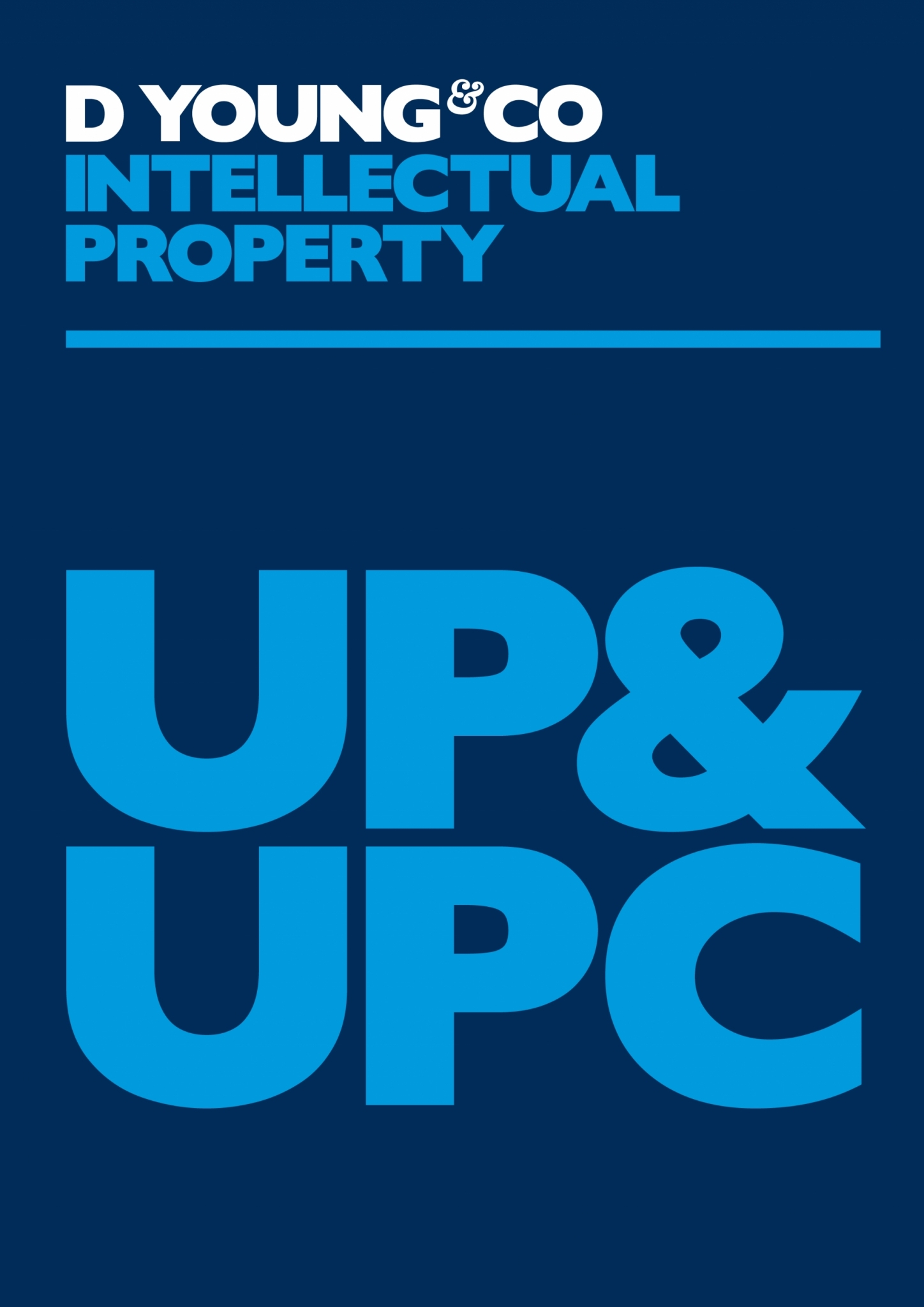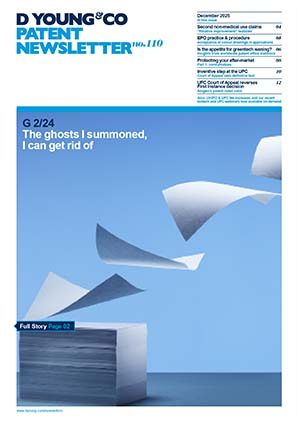AIM Sport Development v Supponor: national litigation and UPC opt-out withdrawals
In a recent order, the Unified Patent Court (UPC) Court of Appeal confirmed that opt-out withdrawals are not affected by national proceedings outside of the transitional period.
Opt-outs and withdrawals
By default, European patents, applications, and supplementary protection certificates (SPCs) are subject to UPC jurisdiction in its participating member states. However, opt-outs are available during a transitional period, to allow gradual transition of jurisdiction from national courts to the UPC. This transitional period lasts at least seven years from entry into force of the UPC on 01 June 2023.
To transition back to UPC jurisdiction registered opt-outs may be permanently withdrawn by the applicant and/or proprietor.
In AIM Sport Development AG v Supponor OY & Ors the UPC Court of Appeal clarified the effect of prior national litigation on opt-out withdrawals.
Case background
AIM had opted out its patent from the UPC system, with effect from 01 June 2023. Subsequently, it requested withdrawal of the opt-out, and lodged an infringement action and a request for provisional measures against Supponor.
However, the Court of First Instance considered the opt-out withdrawal ineffective because of German national proceedings that started in 2020. This was based on its reading of Article 83(4) of the Agreement on a UPC (UPCA). Consequently, the court dismissed the actions on the basis that the UPC did not have competence over the opted-out patent.
Appeal
On appeal, the key consideration was the UPC’s jurisdiction under Article 83 UPCA, particularly the meaning of the phrase “unless an action has already been brought before a national court” in the fourth paragraph.
Different interpretations of this phrase were submitted by the parties. AIM argued that such actions are limited to those brought during the transitional period. This means the German national litigation had no influence on its opt-out withdrawal. In contrast, Supponor argued that such actions are those brought in advance of the opt-out, whether before or during the transitional period. Therefore, AIM’s opt-out withdrawal was ineffective.
Reading Article 83(4) UPCA in isolation, the two interpretations presented by the parties seem reasonable. However, in making its decision, the UPC Court of Appeal sought to interpret Article 83 UPCA in line with the general rules of interpretation from the Vienna Convention, using the ordinary meaning of the terms in their context, and in light of their object and purpose.
Article 83 UPCA explicitly relates to the “transitional regime”. As part of this regime a transitional period was introduced to allow the gradual transition of jurisdiction from national courts to the UPC. In particular, parallel jurisdiction of the UPC and national courts is provided by Article 83(1) UPCA, which states that actions can still be brought in national courts during the transitional period. Possible extension of the transitional period by another seven years is provided by Article 83(5) UPCA.
After the transitional period expires, the UPC will have exclusive jurisdiction. However, Article 83(2) UPCA confirms that national actions brought during the transitional period will not be affected by its expiration. This paragraph does not apply to national actions pending before operation of the UPC, because they were not affected by the transitional regime.
The ability to opt out patents, applications and SPCs from the UPC is provided by Article 83(3) UPCA. Such opt-outs can only be registered in the transitional period (until one month before its expiry), and are not allowed if an action has already been brought before the UPC. Therefore, such actions can only be those brought during the transitional period.
Article 83(4) UPCA allows opt-outs to be subsequently withdrawn. This can be done at any time, provided no actions have already been brought before a national court.
Within the context of Article 83 UPCA as a whole, and considering the object and purpose of the transitional regime of parallel litigation, the Court of Appeal reasoned that the action in Article 83(4) UPCA should have the same meaning as in the other paragraphs: as an action brought during the transitional period.
In particular, the Court of Appeal recognised that the ability to opt out patents during the transitional period, and subsequently withdraw the opt-out, “aims to respect the rights and expectations of proprietors of European patents (and applications), that often pre-date the entry into force of the UPC, and give them the opportunity to gain more confidence and familiarity with the functioning of the new UPC before subjecting their patents to the new system”.
In addition, limitations to the opt-outs and withdrawals were acknowledged to ensure legal certainty and the rights of third parties, by serving to prevent abuse of the system. Once an action has been brought before the UPC a patent cannot be opted out. Similarly, once an action has been brought before a national court the opt-out cannot be withdrawn. Before the transitional period such abuse was not possible.
The UPC Court of Appeal also made clear that “national litigation brought prior to the transitional period is unaffected by the transitional regime. Likewise, there is no apparent reason why such earlier national litigation should affect the transitional regime. In particular, there is no apparent reason why such past litigation should influence the choices deliberately given to a patent proprietor during the transitional period”.
Taking Supponor’s interpretation, the Court of Appeal understood that patent proprietors whose patent had ever been subject to national litigation would not be able to opt out and subsequently withdraw the opt-out. This would leave only two options:
- irreversibly opt-out, and never use the UPC for that patent; or
- not opt out, and miss out on gaining confidence and familiarity with the UPC system first.
This goes against the object and purpose of the opt-out and withdrawal system, and there is no reason why proprietors of patents that were subject to national litigation should be treated differently to those that had not.
Arguments relating to interpretation based on Rule 5.8 of the UPC Rules of Procedure, and minimising parallel litigation to avoid contradictory decisions, were not found to be convincing.
Overall, the Court of Appeal concluded that “considering the wording, structure, object and purpose of Art. 83 UPCA as a whole, […] the sentence “Unless an action has already been brought before a national court” in Art. 83(4) UPCA must be understood to refer to an action brought before a national court during the transitional regime”.
Therefore, the Court of Appeal decided that “Art. 83(4) UPCA must be understood to mean that an earlier opt-out cannot effectively be withdrawn if an action has been brought before the national court at any time during the transitional period. Proceedings that were brought prior to the transitional period, whether still pending or not, do not stand in the way of an effective withdrawal of an opt-out. The Court of First Instance therefore was wrong to consider the withdrawal of the opt-out of the patent at issue ineffective and wrongly dismissed [the actions] for lack of its competence to hear the actions”.
Accordingly, the cases were referred back to the Court of First Instance, which had already heard the technical aspects, but was yet to make a decision.
Comment
This order makes it clear that actions brought before a national court in advance of 01 June 2023 will not prevent proprietors and/or applicants from (re)introducing their patents, applications and SPCs to the UPC system.
In contrast, national actions brought during the transitional period would prevent opt-out withdrawals. As shown in the order’s first headnote the Court of Appeal considered such actions to include “all actions mentioned in Art. 32 UPCA over which the UPC has jurisdiction”. This does appear to be inconsistent with the wording of Article 83(1) UPCA, however, which explicitly refers to infringement and revocation and/or declaration of invalidity actions only.
Case details at a glance
Decision level: UPC Court of Appeal, Luxembourg
Cases: UPC_CoA_489/2023 & UPC_CoA_500/2023
Orders: ORD_598488/2023 & ORD_598489/2023
Parties: AIM Sport Development AG v Supponor OY & Ors
Date: 12 November 2024


